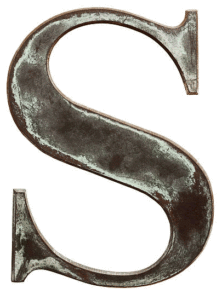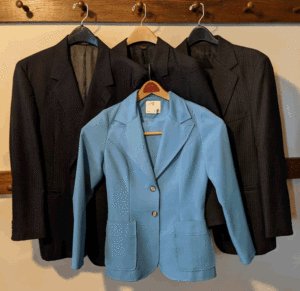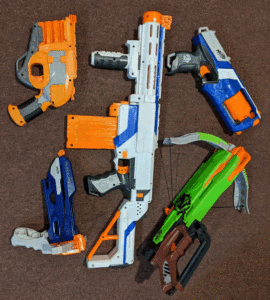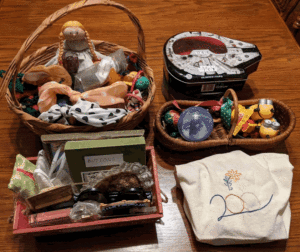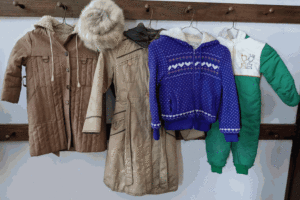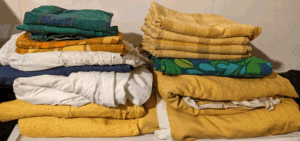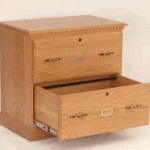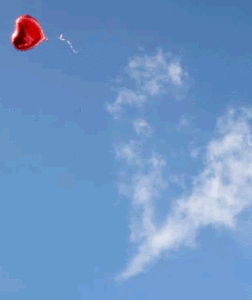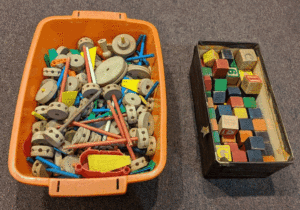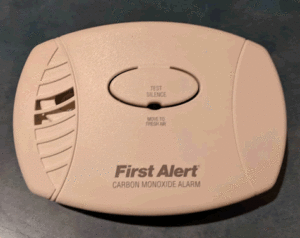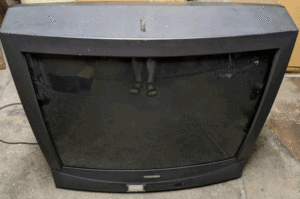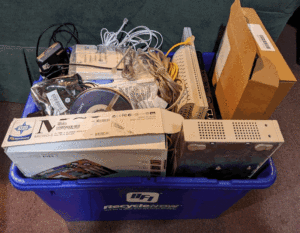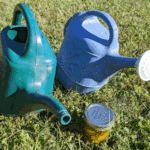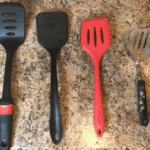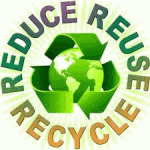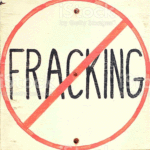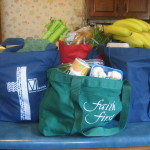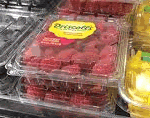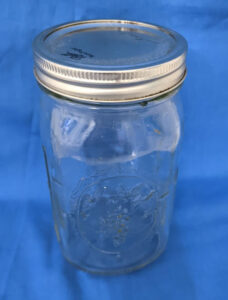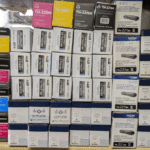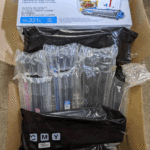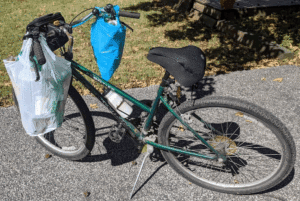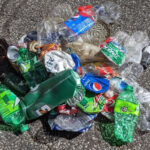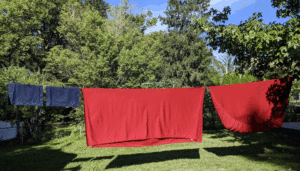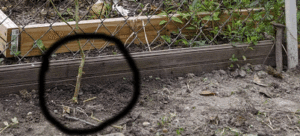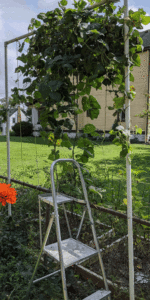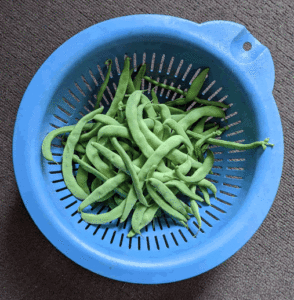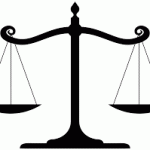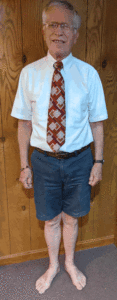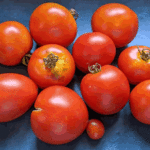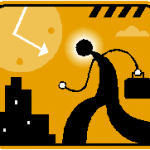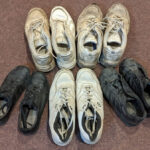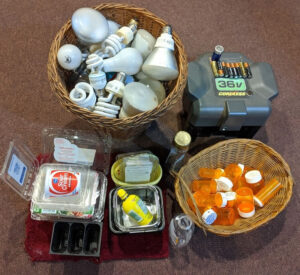Sorting through misc. stuff can be fraught with thorny decisions. True, I’m not using it now, but maybe the next time we go camping we’ll want that old cook stove? Or maybe our kids will want it? Or it has sentimental value. These can be tough “first world lifestyle” decisions. But…once decided, corollary decisions arise – finding worthy homes. I don’t want stuff people can use just going into the garbage and ending up in a landfill.
Fortunately our neighborhood has been blessed with a plethora of vintage, charity, and second hand shops. There are 6 shops within a short walk of my home. I spent one afternoon just exploring each of them and noting their particular focus. This past week I dug deeper into our closets and started distributing stuff. Here’s the skinny on my success. (The failures will come in a future blog.)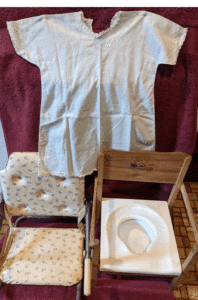
- Baby Stuff: Since all four of our own children are grown and out of the home, why am I still keeping baby stuff? I took a potty chair, a portable highchair, and a Christening gown to New Hope Pregnancy Center.
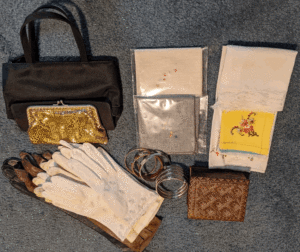 Fancy Grown-up Stuff: Moving on in age, not only do I not need baby stuff, I don’t really care much about stylish stuff. Maybe it’s Covid-19 keeping us all inside more. Maybe it’s just that my taste has become simpler and more practical. So, I took some fancy purses, gloves, bracelets, and embroidered cloths to Curated Design & Decor.
Fancy Grown-up Stuff: Moving on in age, not only do I not need baby stuff, I don’t really care much about stylish stuff. Maybe it’s Covid-19 keeping us all inside more. Maybe it’s just that my taste has become simpler and more practical. So, I took some fancy purses, gloves, bracelets, and embroidered cloths to Curated Design & Decor.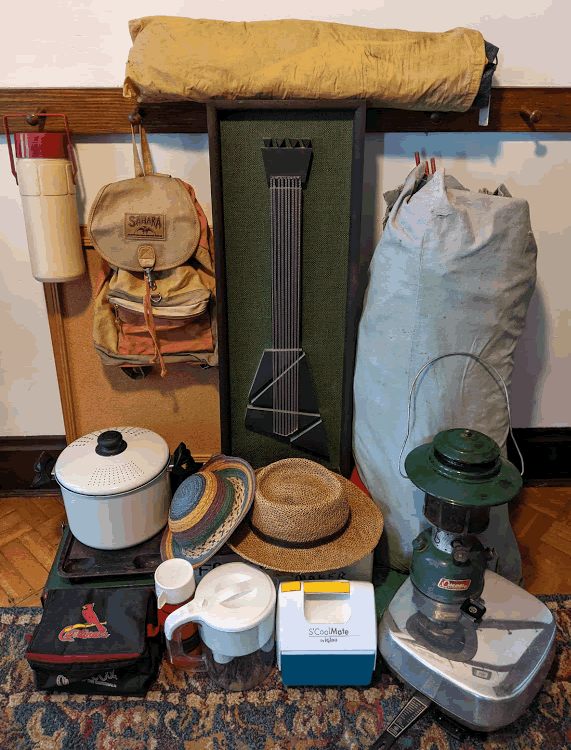
- Practical and Outdoor Stuff: Our basement storage room had a lot of camping gear (tents, stove, cooler, etc.) plus duplicate kitchen equipment, and outdoorsy hats. Half & Half Antique Shop took a few of these items but The Roost and its companion shop, Blondielocks & the 3 Chairs took everything else. Click to enlarge any photo.
- Stuff that shops don’t want: I still had some sheets, pillow cases, Christmas mugs, Halloween pumpkins, and other misc. items that were not of interest to the neighborhood shops so I defaulted to Viet Vets. It’s not local but they do make local pick-ups and it’s easy.
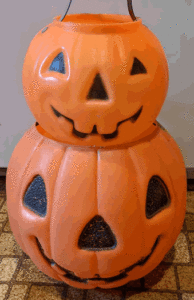
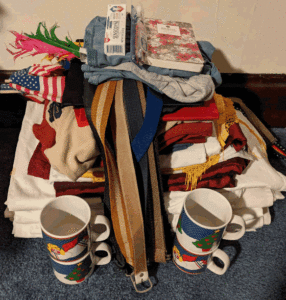
BUT, what if I don’t live in greater Cincinnati, much less Susan’s neighborhood? Where should I take my stuff so it does some good and doesn’t do harm (such as contributing to a bigger landfill)?
- Past Solutions: Click THE PROCESS and scroll down to the last category – WHERE TO TAKE IT ALL – to review my earlier blog posts.
- Universal Solutions: If all else fails, you can always default to classic thrift stores and charitable donation centers such as Goodwill, St. Vincent de Paul, Salvation Army, FreeCycle, Matthew 25 Ministries, and Earth 911 that are available in almost all communities, OR read 101 Places Your Clutter Can Do Some Good.
